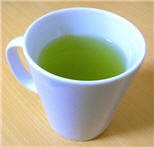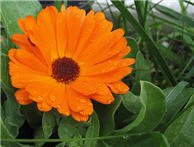 I am a firm believer of the Ancient Chinese Proverb: "Better to be deprived of food for three days, than tea for one." From the ancient times (4,000 years ago), the Chinese have known about the medicinal benefits of green tea that treat everything from headaches to depression. Modern scientific research have demonstrated that the drink has been effective against many kind of diseases, including cancer and cardiac conditions.
I am a firm believer of the Ancient Chinese Proverb: "Better to be deprived of food for three days, than tea for one." From the ancient times (4,000 years ago), the Chinese have known about the medicinal benefits of green tea that treat everything from headaches to depression. Modern scientific research have demonstrated that the drink has been effective against many kind of diseases, including cancer and cardiac conditions. Vast amount of literatures exist on the health benefits of green tea. Listed below are few I rememebered (but sorry I can't find original links).
1) in 1994, the Journal of the National Cancer Institute published an article indicating that drinking green tea reduced the risk of esophageal cancer in Chinese men and women by nearly 60%.
2) University of Purdue researchers recently concluded that a compound in green tea inhibits the growth of cancer cells.
3) there is also research indicating that drinking green tea lowers total cholesterol levels, as well as improving the ratio of good (HDL) cholesterol to bad (LDL) cholesterol.
What makes green tea so special? The secret of green tea lies in the fact it is rich in catechin polyphenols, particularly epigallocatechin gallate (EGCG). EGCG is a powerful anti-oxidant: besides inhibiting the growth of cancer cells, it kills cancer cells without harming healthy tissue. It has also been effective in lowering LDL cholesterol levels, and inhibiting the abnormal formation of blood clots. The latter takes on added importance when you consider that thrombosis (the formation of abnormal blood clots) is the leading cause of heart attacks and stroke.
In addition, the great news also hold for dieters. In November, 1999, the American Journal of Clinical Nutrition published the results of a study at the University of Geneva in Switzerland. Researchers found that men who were given a combination of caffeine and green tea extract burned more calories than those given only caffeine or a placebo. Green tea can even help prevent tooth decay. Just as its bacteria-destroying abilities can help prevent food poisoning, it can also kill the bacteria that causes dental plaque. Meanwhile, skin preparations containing green tea - from deodorants to creams - are starting to appear on the market.
What makes green tea so special? The secret of green tea lies in the fact it is rich in catechin polyphenols, particularly epigallocatechin gallate (EGCG). EGCG is a powerful anti-oxidant: besides inhibiting the growth of cancer cells, it kills cancer cells without harming healthy tissue. It has also been effective in lowering LDL cholesterol levels, and inhibiting the abnormal formation of blood clots. The latter takes on added importance when you consider that thrombosis (the formation of abnormal blood clots) is the leading cause of heart attacks and stroke.
In addition, the great news also hold for dieters. In November, 1999, the American Journal of Clinical Nutrition published the results of a study at the University of Geneva in Switzerland. Researchers found that men who were given a combination of caffeine and green tea extract burned more calories than those given only caffeine or a placebo. Green tea can even help prevent tooth decay. Just as its bacteria-destroying abilities can help prevent food poisoning, it can also kill the bacteria that causes dental plaque. Meanwhile, skin preparations containing green tea - from deodorants to creams - are starting to appear on the market.

